Bozhou Sports School, forging a new path!
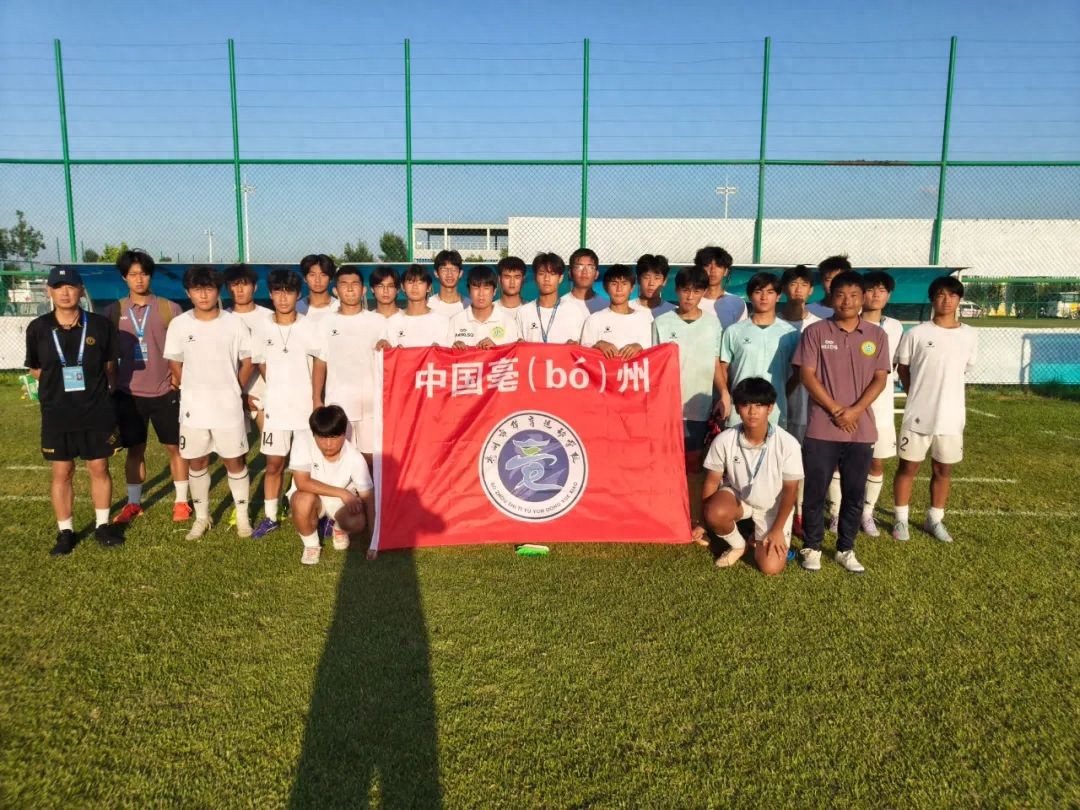
Written by Zuo Rui. “Why are we at the National Youth Championship? We’re not here to be spectators!” Hu Deguang shouted. “We’re here to fight for a place in the top 16! Zhang Zhening, you need to aim for a spot on the national team!” This passionate pep talk from Bozhou Sports School’s head coach, given before the match, was a vivid reflection of the team’s struggle to break through after only two years since its formation.

After leaving Anhui to compete, the name "Bozhou" is often mispronounced as "Haozhou." In Tangshan, a flag was displayed to show their pride in their hometown, clarifying the correct pronunciation “bó.” Bozhou, home to historical figures like Hua Tuo, Cao Cao, and Hua Mulan, established its sports school in 2019, serving as a hub for promoting Hua Tuo’s Five-Animal Exercises and nurturing sports talent. When the football program began in 2023, the local lack of professional coaches led the city’s cultural, tourism, and sports bureau to hire services from Hefei.
Unlike Hefei Sports School, which has a 52-year history and official accreditation, Bozhou Sports School can only offer amateur training. After the football team was founded, Bozhou No. 11 Middle School provided student registration, facilities, and accommodation, while the sports school was responsible for recruiting talent from the city and province, offering professional coaching and funding for training and competitions. “Ninety percent of the kids choose our school because of their love for football; the rest hope to use their football skills to get into college,” Hu Deguang explained.
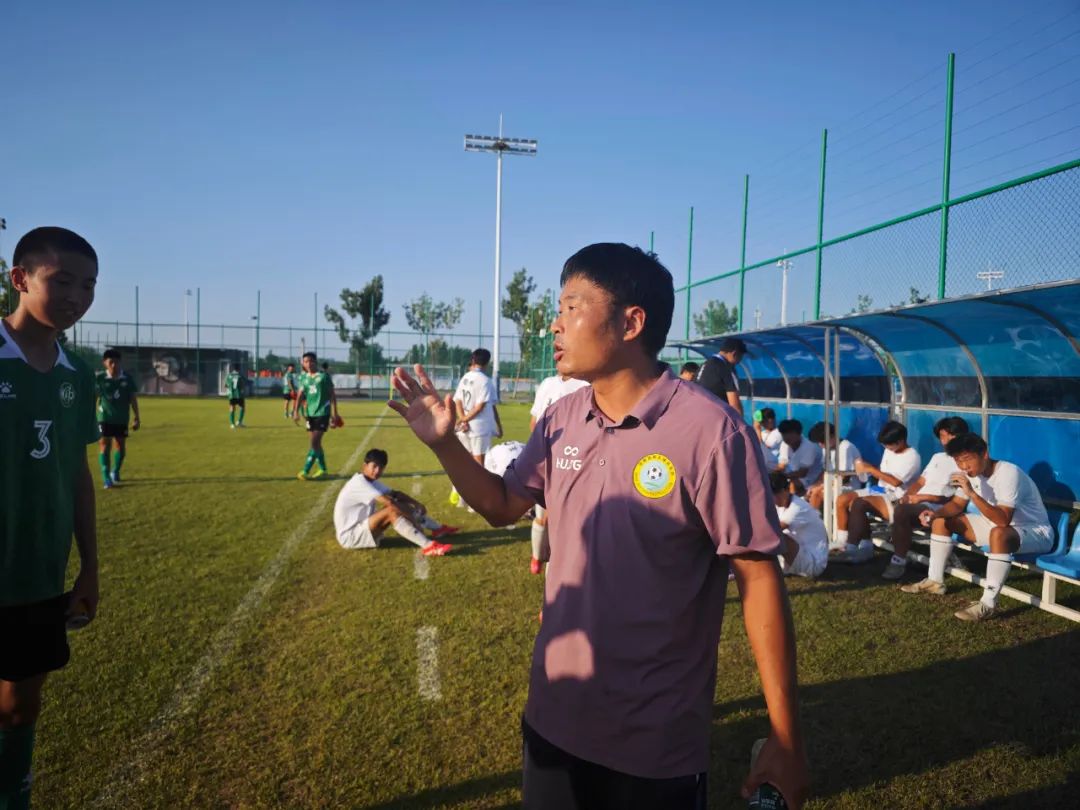
Hu Deguang, 40, started out at Chengdu Wuniu and founded a youth training club in Hefei. The team that reached the U15 National Finals of the Youth Championship was Bozhou Sports School’s first batch of footballers. Previously, they trained in their respective primary and middle schools for anywhere from two to seven years. Although their footwork improved at the sports school, it remained their biggest weakness in the youth championship.
Over two years, the players finished their studies at No. 11 Middle School each day, then trained from 8:00 to 9:30 pm. During winter and summer breaks, the school was closed off, so the team moved to Hefei for intensive training. Their hard work under the floodlights made them unbeatable locally and broke Hefei’s dominance in the Anhui Youth Championship. But once in the regional rounds of the national championship, “We lack foot skills, so we rely on sheer grit to advance,” said player Feng Shaoyang. The head coach told them to “play every match as if it were the last.”
Making their debut in the National Youth Championship finals, Bozhou Sports School kept fighting in Tangshan. They lost 1-11 to Luneng U14 in the first group match, narrowly won 2-1 against Chongqing Fengmingshan Middle School in the second, and were defeated 0-5 by Shaanxi Normal University Affiliated School in the third. Every game, they relied on strength, determination, and tight defense to challenge their opponents.
Earning a spot in the playoffs as group third came with a heavy price: midfielder Feng Shaoyang received a second yellow card and was suspended, while forward Cheng Shibo was injured and taken to the hospital by ambulance. Even though their playoff opponent was last year’s runner-up, Tsinghua Affiliated School, Hu Deguang told his players, “Second or third in the group makes no difference—we’re still in it!” A day later, their journey ended with a 1-10 loss in the finals.
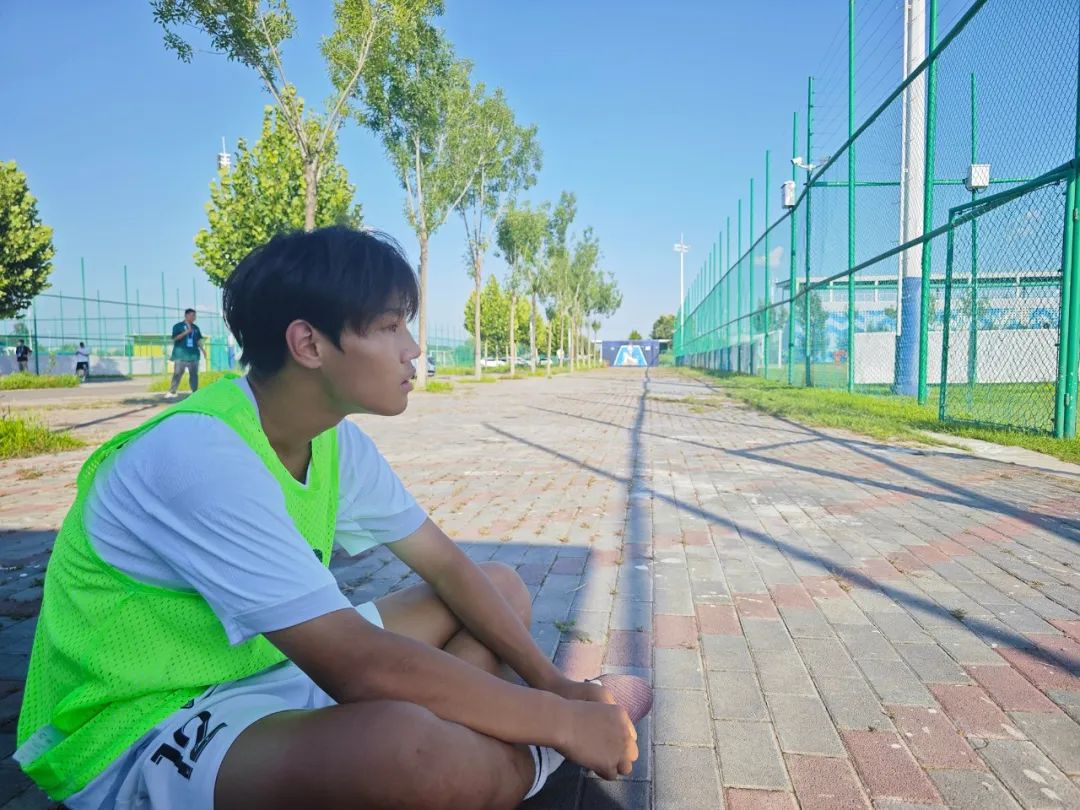

During the tournament, teams like Tsinghua Affiliated School and Evergrande Football School always had dozens of parents cheering in all weather, following the teams to their hotels afterward to offer advice and hugs. Some families would rent apartments in the host city, and wherever their sons played, the parents would follow.
Such touching scenes were rare for the sports school teams, with only a few parents from Datong Sports School coming to Tangshan. While time and financial constraints played a role, Datong’s team manager Sun Yu offered another perspective: “Perhaps the expectations parents have for our players aren’t as high as for others.”
At public sports schools, food, lodging, training, and competitions are all free, giving many children from ordinary families the chance to play football. For Bozhou Sports School, over 30% of players are left-behind children. The team provides them with an opportunity to escape loneliness, avoid giving up on themselves, and even change their lives through football.
Because their parents work away from home, these children lack care and affection. Football and academics fill their days, giving them a sense of fulfillment and warmth. Besides tactics on the field, Hu Deguang also worries about issues off the pitch. Sometimes he feels exhausted leading the team, “like being both a father and a mother.” But he understands why his players are challenging to manage: “It’s not easy for them either.”
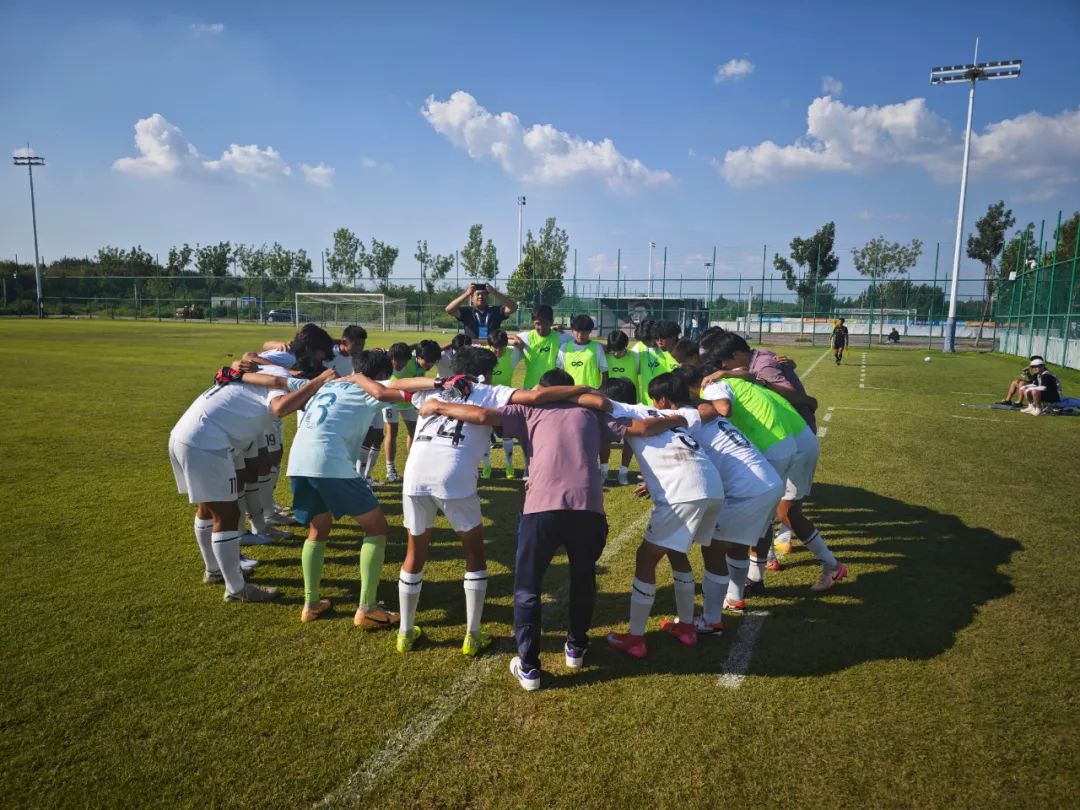
The most restless head coach in the entire tournament played every match on the back foot, constantly shouting instructions in hopes of improving his players’ execution. “Why aren’t you following the tactics I set? If you just do what I say, the score wouldn’t look like this!” The players gave their all, and Hu Deguang summed up the team’s style as “aggressive defense and relentless pressing.”
Although Bengbu produced stars like Li Yi and Wei Shihao, Anhui football has always had a weak presence in Chinese soccer. In recent years, school football has risen first in Hefei, and efforts to revitalize the “three major balls” have spread across the region. Bozhou Sports School’s surprise entry into the top 32 of the youth championship exceeded many people’s expectations—and the original budget of the overseeing department. As a result, Hu Deguang paid the competition fees out of his own pocket, and only after team leader Zhang Yan, a third-level researcher from the city’s cultural, tourism, and sports bureau, worked hard, did they secure the funding afterward.
But the biggest issue now isn’t funding—it’s whether the team can continue to exist. Because these junior high graduates missed Bozhou No. 18 Middle School’s football skills test due to the competition, 19 out of 20 football specialty spots at the school remain vacant this autumn. Most of them have good academic records—90% can get into high school, and about a third into key high schools—but if the players are scattered across different schools or even return to their hometowns, it will be hard to maintain their training results. “When we get back, we need to quickly negotiate with the education bureau to solve this, and try to keep the team together at one school.” Next year and the year after, the U14 and U13 teams will face the same problem.
Hu Deguang said that the team’s progress is already a result of integrating sports and education, but clearly more work is needed in this direction. Regarding the players’ prospects after the high school entrance exam, he sees two paths: specialty students or professionals. Some players have already been included in the national youth talent pool, while others are still unsure: “I don’t know. I just wanted to play more matches at the sports school.”
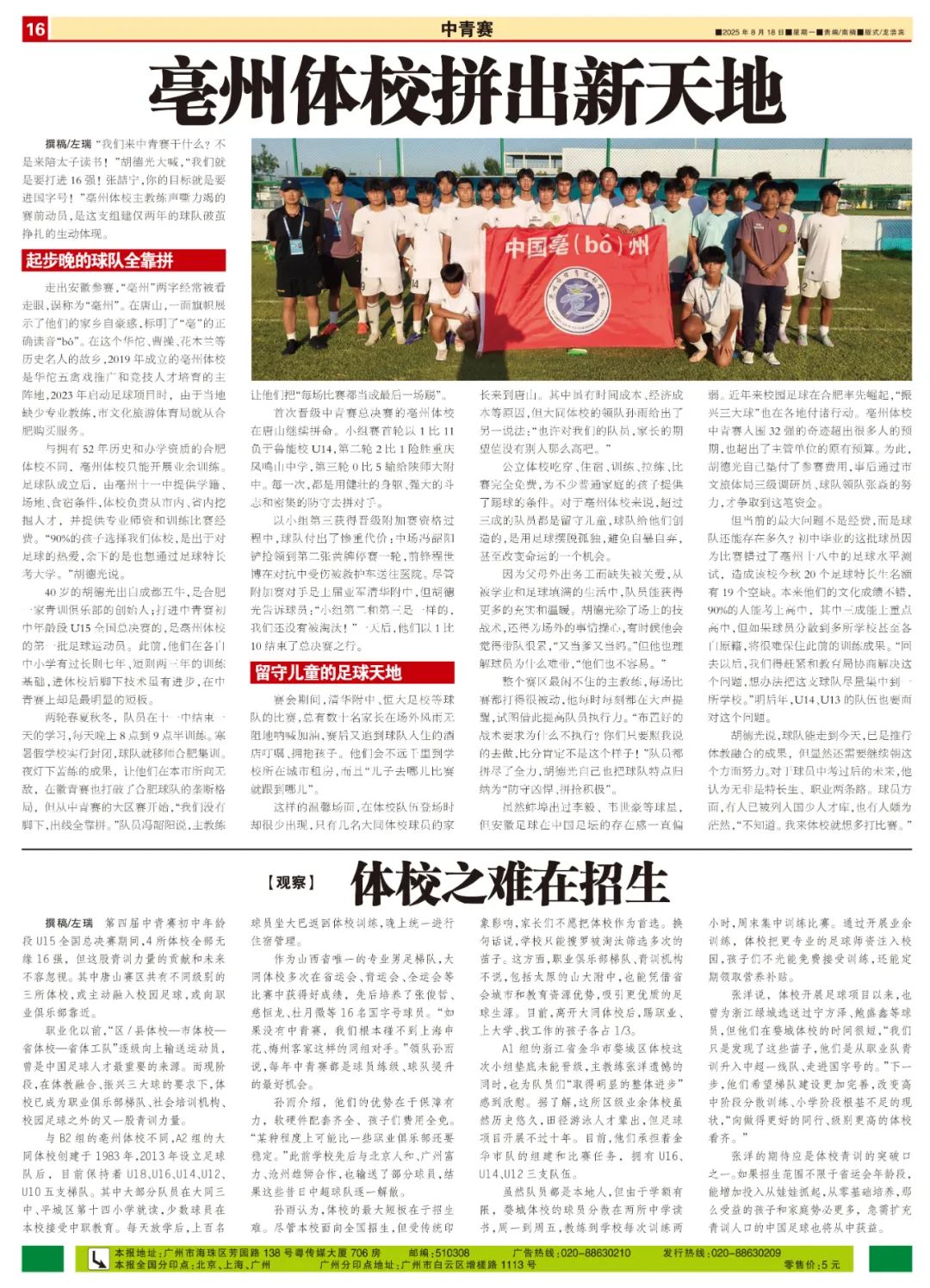


Wonderfulshortvideo
User SportScoop has posted a video.


User pandatv has posted a video.


User FieldFrenzy has posted a video.


User FieldFrenzy has posted a video.


Mo Salah on achieving more than he could've ever dreamed of as a young boy in Egypt 👏🏆


blueco enciso chelsea signing todd boehly


Packing 99s in August is kinda fun








 Links
Links
 Contact
Contact
 App
App


